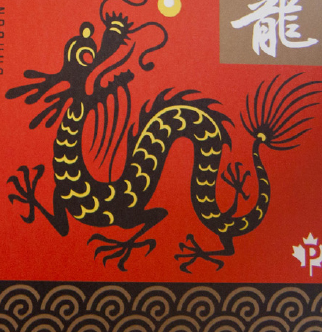|

It's only 8 a.m., but the lines outside Beijing's post offices are already long, and 2012 has only just begun. People queuing amidst wintry morning temperatures are waiting to buy Year of the Dragon stamps, which went on sale this past January 5.
Released annually, Zodiac Stamps have always been favored by Chinese collectors. But this year's dragon stamp has attracted much more attention than previous editions of the postage product.
"We've seen a huge increase in the number of buyers this year since 'dragon' has a special meaning for the Chinese, [culturally]," says Li Ping, who works in China Post's circulation department.
The dragon is an iconic image in China. Its likeness is often used in designs promoting Chinese culture. And Chinese people, both at home and abroad, often regard themselves as "descendants of the dragon." Its written character, 龙, is included in the names of millions.
In the Chinese language, people who are high achievers are often compared to dragons. Many Chinese idioms also make reference to dragons. "Hoping one's son will become a dragon" is just one of these phrases. The dragon in this instance represents the promise of a bright future.
Why are dragons so popular and beloved in China?
The Chinese dragon differs greatly from dragons in the Western tradition, which are often seen as evil, warlike, fire-breathing, maiden-eating monsters. Instead, in the East, dragons are symbols of auspicious power, strength, nobility and good luck.
"The dragon in Western culture has low cultural rank," explains Pang Jin, Director of the China Research Center on Dragon and Phoenix Culture. "But in China, it's a spiritual and cultural symbol representing prosperity and good luck."
|